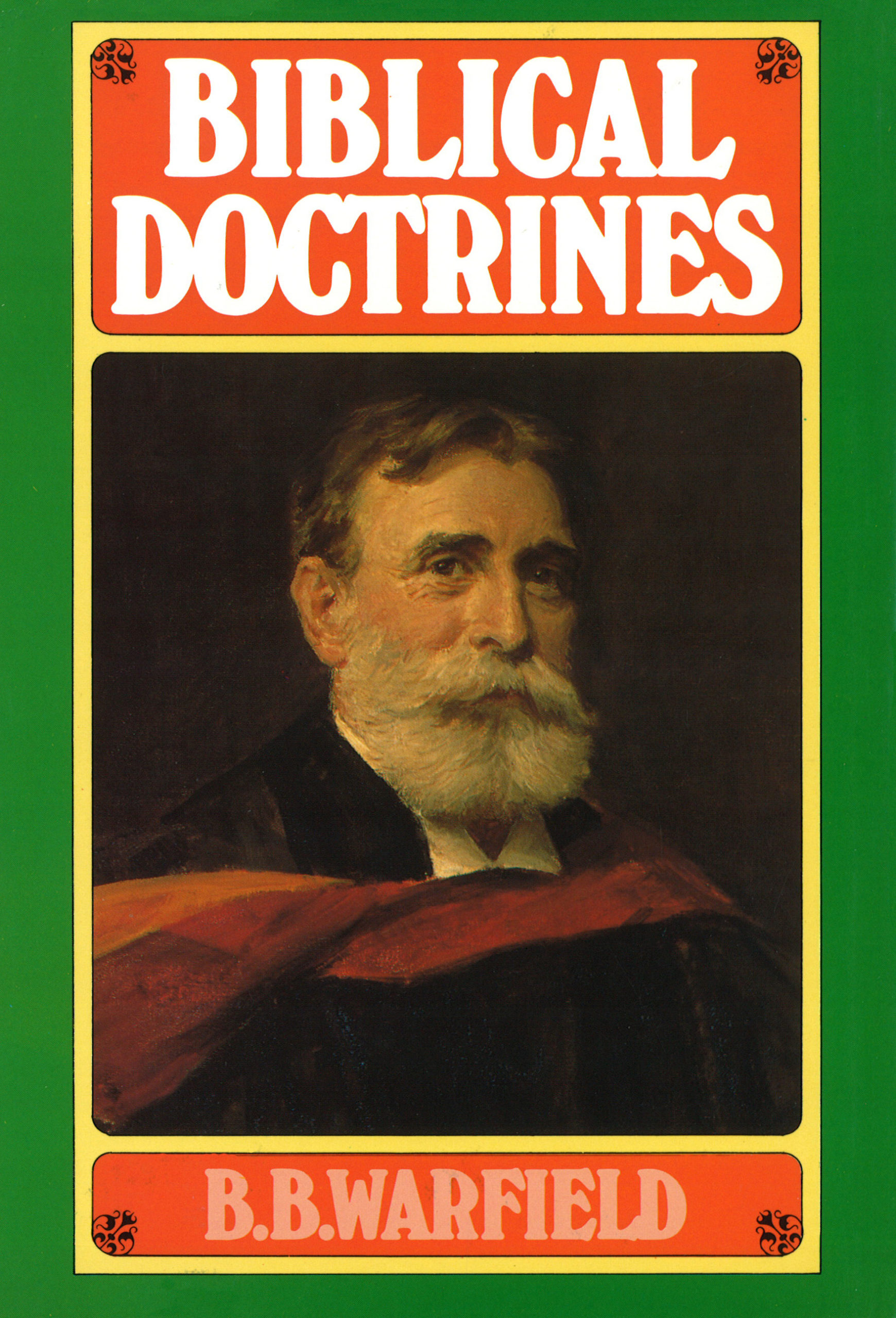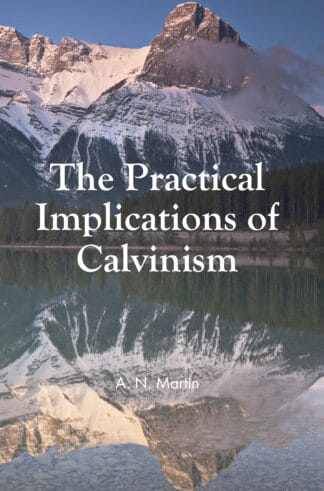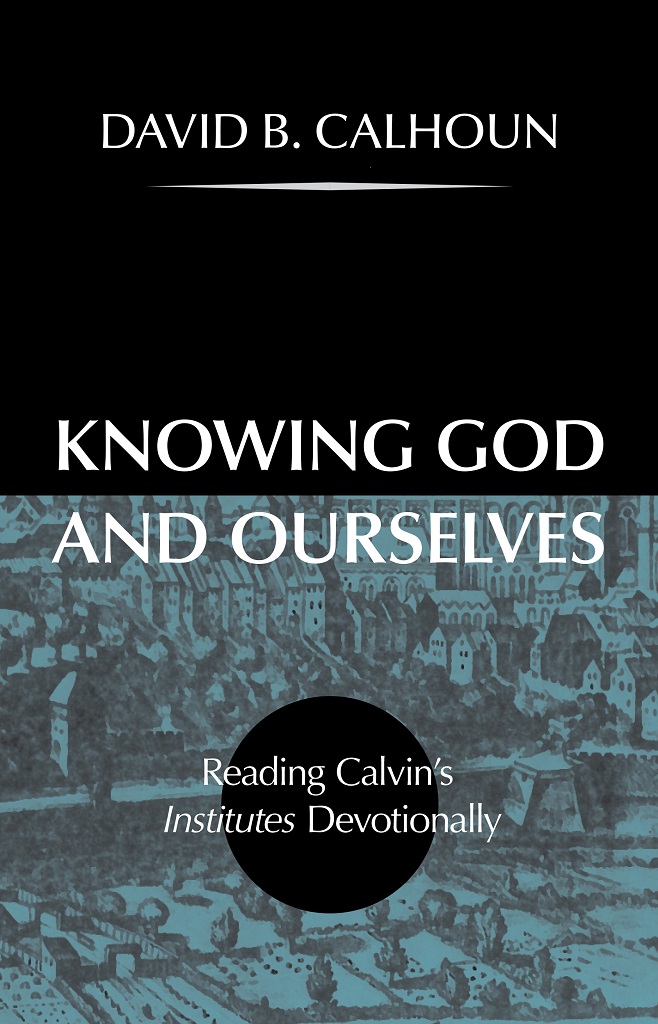What is Calvinism?
It is very odd how difficult it seems for some persons to understand just what Calvinism is. And yet the matter itself presents no difficulty whatever. It is capable of being put into a single sentence; and that, one level to every religious man’s comprehension. For Calvinism is just religion in its purity. We have only, therefore, to conceive of religion in its purity, and that is Calvinism.
In what attitude of mind and heart does religion come most fully to its rights? Is it not in the attitude of prayer? When we kneel before God, not with the body merely, but with the mind and heart, we have assumed the attitude which above all others deserves the name of religious. And this religious attitude by way of eminence is obviously just the attitude of utter dependence and humble trust. He who comes to God in prayer, comes not in a spirit of self-assertion, but in a spirit of trustful dependence. No one ever addressed God in prayer thus: ‘O God, thou knowest that I am the architect of my own fortunes and the determiner of my own destiny. Thou mayest indeed do something to help me in the securing of my purposes after I have determined upon them. But my heart is my own, and thou canst not intrude into it; my will is my own, and thou canst not bend it. When I wish thy aid, I will call on thee for it. Meanwhile, thou must await my pleasure.’
Men may reason somewhat like this; but that is not the way they pray. There did, indeed, once two men go up into the temple to pray. And one stood and prayed thus to himself (can it be that this ‘to himself’ has a deeper significance than appears on the surface?), ‘God, I thank thee that I am not as the rest of men.’ While the other smote his breast, and said, ‘God be merciful to me a sinner.’ Even the former acknowledged a certain dependence on God; for he thanked God for his virtues. But we are not left in doubt in which one the religious mood was most purely exhibited. There is One who has told us that with clearness and emphasis.
All men assume the religious attitude, then, when they pray. But many men box up, as it were, this attitude in their prayer, and shutting it off from their lives with the Amen, rise from their knees to assume a totally different attitude, if not of heart, then at least of mind. They pray as if they were dependent on God’s mercy alone; they reason–perhaps they even live–as if God, in some of his activities at least, were dependent on them. The Calvinist is the man who is determined to preserve the attitude he takes in prayer in all his thinking, in all his feeling, in all his doing. That is to say, he is the man who is determined that religion in its purity shall come to its full rights in his thinking, and feeling, and living. This is the ground of his special mode of thought, by reason of which he is called a Calvinist; and as well of his special mode of acting in the world, by reason of which he has become the greatest regenerating force in the world. Other men are Calvinists on their knees; the Calvinist is the man who is determined that his intellect, and heart, and will shall remain on their knees continually, and only from this attitude think, and feel, and act. Calvinism is, therefore, that type of thought in which there comes to its rights the truly religious attitude of utter dependence on God and humble trust in his mercy alone for salvation.
There are at bottom but two types of religious thought in the world–if we may improperly use the term ‘religious’ for both of them. There is the religion of faith; there is the ‘religion’ of works. Calvinism is the pure embodiment of the former of these; what is known in Church History as Pelagianism is the pure embodiment of the latter of them. All other forms of ‘religious’ teaching which have been known in Christendom are but unstable attempts at compromise between the two. At the opening of the fifth century, the two fundamental types came into direct conflict in remarkably pure form as embodied in the two persons of Augustine and Pelagius. Both were expending themselves in seeking to better the lives of men. But Pelagius in his exhortations threw men back on themselves; they were able, he declared, to do all that God demanded of them–otherwise God would not have demanded it.
Augustine on the contrary pointed them in their weakness to God; ‘He himself,’ he said, in his pregnant speech, ‘He himself is our power.’ The one is the ‘religion’ of proud self-dependence; the other is the religion of dependence on God. The one is the ‘religion’ of works; the other is the religion of faith. The one is not ‘religion’ at all–it is mere moralism; the other is all that is in the world that deserves to be called religion. Just in proportion as this attitude of faith is present in our thought, feeling, life, are we religious. When it becomes regnant in our thought, feeling, life, then are we truly religious. Calvinism is that type of thinking in which it has become regnant.
‘There is a state of mind,’ says Professor William James in his lectures on ‘The Varieties of Religious Experience,’ ‘known to religious men, but to no others, in which the will to assert ourselves and hold our own has been displaced by a willingness to close our mouths and be as nothing in the floods and waterspouts of God.’ He is describing what he looks upon as the truly religious mood as over against what he calls ‘mere moralism.’ ‘The moralist,’ he tells us, ‘must hold his breath and keep his muscles tense’; and things go well with him only when he can do so. The religious man, on the contrary, finds his consolation in his very powerlessness; his trust is not in himself, but in his God; and ‘the hour of his moral death turns into his spiritual birthday.’ The psychological analyst has caught the exact distinction between moralism and religion. It is the distinction between trust in ourselves and trust in God. And when trust in ourselves is driven entirely out, and trust in God comes in, in its purity, we have Calvinism. Under the name of religion at its height, what Professor James has really described is therefore just Calvinism.
We may take Professor James’ testimony, therefore, as testimony that religion at its height is just Calvinism. There are many forms of religious teaching in the world which are not Calvinism. Because, teaching even in religion often (ordinarily even) offers us only ‘broken lights.’ There is no true religion in the world, however, which is not Calvinistic–Calvinistic in its essence, Calvinistic in its implications. When these implications are soundly drawn out and stated, and the essence thus comes to its rights, we obtain just Calvinism. In proportion as we are religious, in that proportion, then, are we Calvinistic; and when religion comes fully to its rights in our thinking, and feeling, and doing, then shall we be truly Calvinistic. This is why those who have caught a glimpse of these things, love with passion what men call ‘Calvinism,’ sometimes with an air of contempt; and why they cling to it with enthusiasm. It is not merely the hope of true religion in the world: it is true religion in the world–as far as true religion is in the world at all.
Originally printed in The Presbyterian, March 2, 1904, pp. 6-7; Reprinted in Selected Shorter Writings of Benjamin B. Warfield, Vol. 1, pp. 389-392
Of Further Interest

Description
It is very odd how difficult it seems for some persons to understand just what Calvinism is. And yet the matter itself presents no difficulty whatever. It is capable of being put into a single sentence; and that, one level to every religious man’s comprehension. For Calvinism is just religion in its purity. We have […]

Description
It is very odd how difficult it seems for some persons to understand just what Calvinism is. And yet the matter itself presents no difficulty whatever. It is capable of being put into a single sentence; and that, one level to every religious man’s comprehension. For Calvinism is just religion in its purity. We have […]

Knowing God and Ourselves
Reading Calvin’s Institutes Devotionally
Description
It is very odd how difficult it seems for some persons to understand just what Calvinism is. And yet the matter itself presents no difficulty whatever. It is capable of being put into a single sentence; and that, one level to every religious man’s comprehension. For Calvinism is just religion in its purity. We have […]
Latest Articles
On the Trail of the Covenanters 12 February 2026
The first two episodes of The Covenanter Story are now available. In an article that first appeared in the February edition of the Banner magazine, Joshua Kellard relates why the witness of the Scottish Covenanters is worthy of the earnest attention of evangelical Christians today. In late November of last year, on the hills above […]
A Martyr’s Last Letter to His Wife 11 February 2026
In the first video of The Covenanter Story, which releases tomorrow, we tell the story of James Guthrie, the first great martyr of the Covenant. On June 1, the day he was executed for high treason, he coursed the following farewell letter to his wife: “My heart,— Being within a few hours to lay down […]
